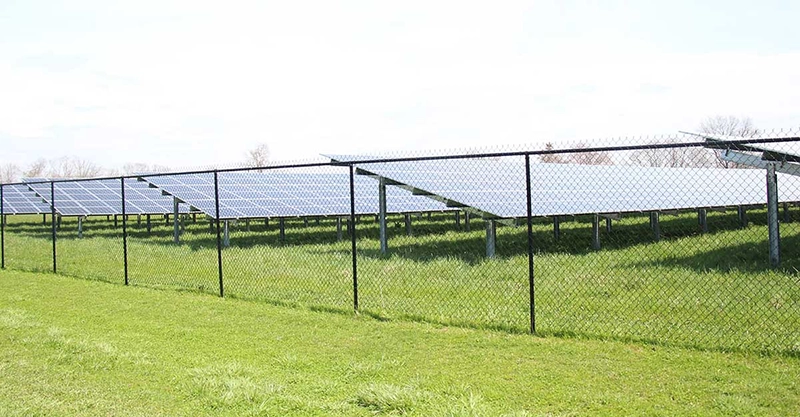April 21, 2025
Providence College reaps financial benefit from solar projects
Through agreements supporting the development and operation of four solar energy projects in Rhode Island, Providence College will save $1.35 million on its electric bill this year.
The projects are expected to generate a combined 22 million kilowatt hours of electricity in 2025. The college consumes 25 million, said Andrew Sullivan, assistant vice president of the physical plant.
“For every kilowatt hour of solar produced by the farms, we receive a monthly credit on our Rhode Island Energy bill,” Sullivan said. “The college wants to support renewable energy, and there is a significant financial benefit to us as well.”
The college’s first solar partnership to go online was Blackhorse Farm Solar LLC, which began operating in January 2021 on a former horse farm owned by Patricia and Alexander Joe, the parents of Matthew A. Joe ’95 and Stephan P. Joe ’98. A partnership between the college and Energy Development Partners, it generates 5.5 million kilowatt hours a year.

The college shares the benefits of two other solar projects with other institutions through the Association of Independent Colleges and Universities of Rhode Island. One is a solar farm on a decommissioned U.S. Navy fuel storage depot and landfill in Middletown, which began producing energy in July 2023. The other, in West Greenwich, went online in December 2023.
The fourth solar project in Exeter, Rhode Island, also developed by Energy Development Partners, went online in January 2025.
The college began exploring investment in solar energy in 2017, seeking projects in which the benefits would outweigh the costs. In all four partnerships, the college did not invest money up front. Instead, it pays a portion of the energy credits it receives — either a set fee or a percentage — to the developer under a 25-year agreement.
“The college is helping to finance solar production, but we are not producing solar energy ourselves,” Sullivan said.
Electricity consumption on campus is expected to increase with the addition of the Ben Mondor Center for Nursing and Health Sciences and the expansion of the college’s chiller plant. The college is exploring a partnership to add 6 million kilowatt hours of remote solar production, which would save $325,000 and allow the college to offset more than 90 percent of its electrical usage. The additional capacity would increase annual savings to more than $1.6 million.





